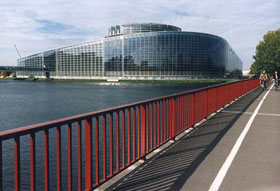The European Commission disavowed open source
 On January 15, a report was published on the website of the European Commission, which the influential supreme government structure of the EU asked to compile scientists from the UN University in Maastricht, Holland, and several other institutions in European countries. On nearly 300 pages, the results of many months of research were summed up and an unequivocal conclusion was made: using Open Source software in most cases is more profitable in the long term than using proprietary software.
On January 15, a report was published on the website of the European Commission, which the influential supreme government structure of the EU asked to compile scientists from the UN University in Maastricht, Holland, and several other institutions in European countries. On nearly 300 pages, the results of many months of research were summed up and an unequivocal conclusion was made: using Open Source software in most cases is more profitable in the long term than using proprietary software.And so, the authors decided to back up a strong report on one of these phrases with impressive figures (probably with the aim of “finishing off” US readers): it turns out that open-source software for the European economy saves up to € 2 billion a year!
Initiative for Software Choice , an association of proprietary software vendors defending their interests where necessary, for obvious reasons, was very offended by the report and, most importantly, dozens of articles in the press describing it as a big step towards the wide dissemination of Open Source.
')
Already on January 18, ISC Director Hugo Lueders (Hugo Lueders) sent an open letter to the head of the European Commission ICT department (pdf, 64 Kb), in which he stated that the study very superficially reflects the situation in the European textile industry and suffers from a lack of objectivity.
According to him, ISC and “hundreds” of its partners are perplexed: if, as follows from the report, the position of open source software in the EU is so good, why are all these calls for its state support in promoting the market?
In this regard, Lüders asks the Commission “two direct questions”:
- Is it true that the Commission accepted the recommendations of the report?
- Does the report reflect the new open source policy preferences from the Commission?
It took a couple of weeks before the European office apparatus, which was no different in agility, answered the letter, but the answer certainly satisfied the people from ISC and the Brussels bar closest to their headquarters that day was emptying its supplies.
On Tuesday, the EC representatives contacted journalists (read, for example, on ZD Net UK ) with insistent statements that their position is extremely neutral on the choice of software and is based primarily on standards, open competition, interoperability and independence from a particular vendor . There are no special preferences for Open Source.
However, it was added that the Commission does not plan to conduct a repeated study on the contribution of FLOSS to the EU economy. And now, in general, we have the same situation as before the report. But it looks like we should expect new, even more aggressive crusades on the part of manufacturers of proprietary software like Get the Facts from Microsoft.
Source: https://habr.com/ru/post/5016/
All Articles